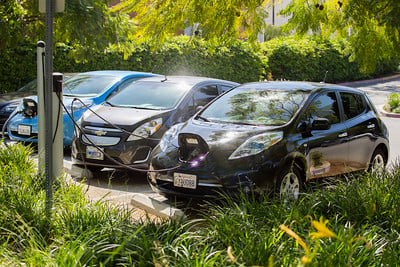Millions of UK motorists could face a steep £150 increase in their annual car tax bills following recent Vehicle Excise Duty (VED) changes that came into effect on April 1, 2025.
The AA has warned that these increases will deliver a “major financial shock” to many drivers, particularly those with older, low-emission vehicles registered between 2001 and 2017.
“For those with ageing low-CO2 small family and city cars, the transition to the current standard VED rate could see a hike of £150 or more a year on their motoring tax,” said Jack Cousens, AA breakdown expert.
This increase represents a significant 34% jump on top of what the average car owner already pays in fuel duty each year (£436.84, or £524.21 when VAT is added at the pump).
The DVLA has raised VED rates for most petrol, diesel, and electric vehicles. Cars registered between March 1, 2001, and March 31, 2017, are taxed based on their CO2 emissions, with government data showing that 58% of UK motorists fall under this older VED scheme.
For the first time, electric vehicle owners are also required to pay VED. Those with EVs registered between April 1, 2017, and March 31, 2025, now pay the standard rate of £195 annually, while owners of older EVs (registered between March 1, 2001, and March 31, 2017) face a lower annual charge of £20.
New EVs registered after April 1, 2025, will pay a first-year rate of £10, which then rises to the standard £195 from the second year onwards. More expensive electric vehicles with a list price exceeding £40,000 and registered after April 1, 2025, will pay an additional “luxury” tax of £425 on top of the standard rate from years two to six.
Similar Posts
Many savvy EV drivers managed to beat the new charges by renewing their VED early. Data shows that car taxes were renewed for 244,598 electric cars across the UK in March 2025, a massive 1,467% increase compared to the 15,614 renewals recorded in March 2024.
“Such a big increase in renewals shows just how many EV drivers might have got themselves another year of road tax-free motoring, and who wouldn’t want to save £195 if they had the chance?” said Sam Sheehan, motoring editor at cinch.
The regional breakdown revealed significant variations in renewal rates. Bath led with a staggering 14,534% increase in EV road tax renewals in March 2025 compared to the same period a year earlier, with potential savings for EV owners in the area estimated at £4.1 million.
Drivers who don’t pay their VED on time could face an £80 penalty and risk invalidating their car insurance. To check if you’ve been affected by the changes, you can use online tools like WeBuyAnyCar’s free number plate checker, which provides information about your vehicle’s engine size, power, CO2 emissions, tax status, and due date.

The RAC explained: “Road tax is calculated based on emissions levels, and those with higher levels will pay more each year. This is because they contribute more to pollution and environmental impact.”
These changes are part of the government’s efforts to create a more consistent taxation system across all vehicle types as the electric vehicle market continues to grow.

















